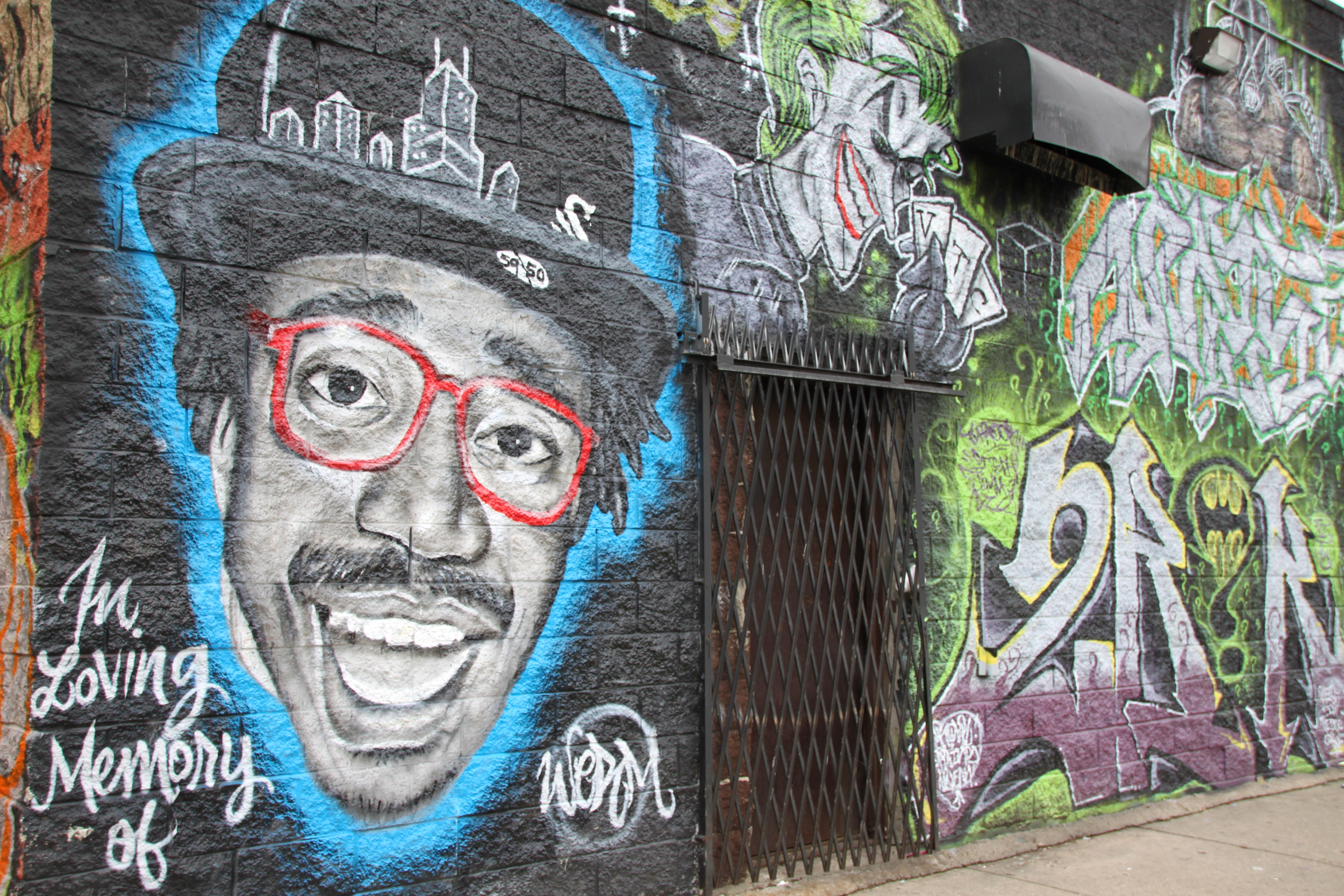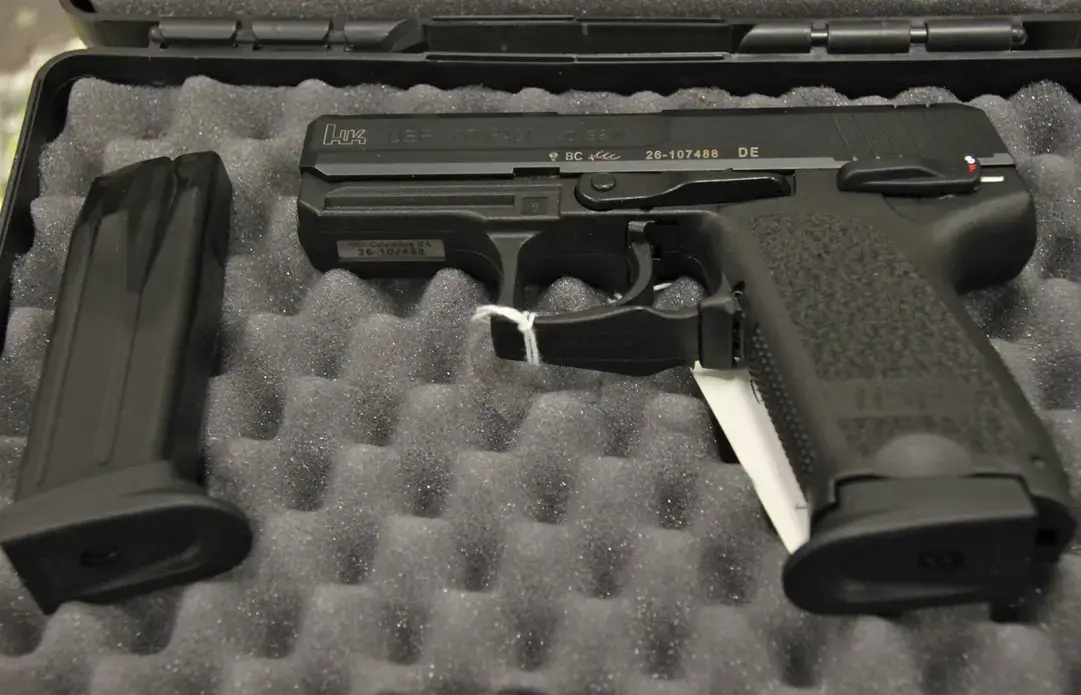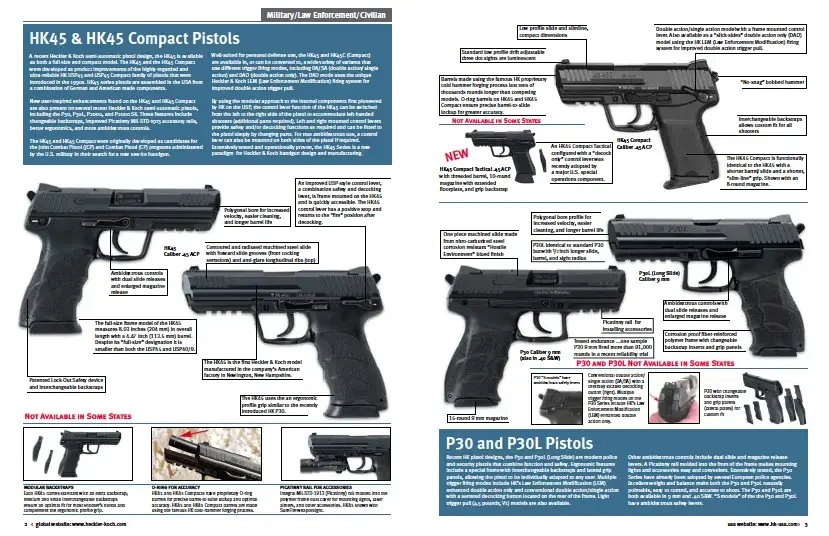A Heckler & Koch, or HK as it is more commonly known in the United States, is certainly not your average "Saturday Night Special" that sells on Chicago's streets for as little as $150. HK stands for a premium brand, the high-end segment of an industry that, faced with the challenges of a shrinking market, needs the American consumer – from the collector and sports shooter to the straw buyer – to survive. Being a premium brand also means taking pride in producing a sustainable product that can outlive generations. HKs might not serve the secondary market immediately, but guns travel fast on the streets. The 506 homicides that occurred in Chicago in 2012 might be considered a local problem, but gun manufacturing is a global business.
Heckler & Koch benefited from all the publicity it received when it was leaked that Osama bin Laden was killed with a HK 416 rifle. The German company already profits greatly from military deals with the U.S. government. A U.S. government contract shows that HK will provide new rifles for the U.S. Marines (worth $23.6 million), replace firearms for the military (worth $4.5 million) over the course of the next five years, and deliver submachine guns (of unknown value as the estimated costs are blackened out in the document).
HK's engagement with the civilian market is smaller, but no less important. The United States is the biggest civilian market worldwide. Both military and civilian segments are crucial for HK's survival. "Second only after Saudi Arabia, the United States is Heckler & Koch's most important market," said German Jürgen Grässlin, an expert on the company for years.
Founded in 1949, Heckler & Koch developed into a leading brand in the small arms industry. Its G3 rifle is world renowned – law enforcement professionals appreciate German gun craft. In 1976, the company established a division to serve the U.S. market. "In recent years, the company has taken steps to expand its share in the market. It has established manufacturing facilities in Columbus, GA; Newington, NH and Ashburn, VA," said Tom Diaz, an expert on the U.S. gun market and a former NRA member.
Access to the U.S. headquarters – or for that matter any company facility – is rarely granted by HK; interview requests are denied and most questions sent via email remain unanswered. The business likes to keep quiet.
Although the company does not reveal any numbers on sales, one thing seems certain: The company's interest in the United States is growing. And it needs to grow. The company, owned by the Heckler und Koch Beteiligungs-GmbH, a limited liability corporation since 2002, has serious financial difficulties despite solid profits.
In February 2012, Moody's downgraded the company to a Caa2 rating, noting in its credit opinion that "Operating cash flow generation and available cash on balance sheet continue to be barely sufficient to cover operating needs and annual interest payments of EUR 28 million on the EUR 295 senior secured notes due at 2018."
With huge liabilities to deal with and only so much cash in the bank, a possible bankruptcy for HK is closer than one might think. Nothing new for HK, according to Grässlin, the German analyst, as the company has faced numerous bankruptcies in its history. HK might have a $277 million revenue and a $48 million operating profit, but still it needs every sale in the U.S. Strengthening the brand name in the biggest market for small arms worldwide is critical. "For Heckler & Koch everything depends on the demand from the U.S. market," said Peter Lock, a German expert on the small arms industry.
President Obama and the ongoing gun law debate play into that. Many gun enthusiasts are afraid they won't be able to get guns for much longer so they buy more of them. Obama's first election had the same effect, said Aaron Karp, senior consultant to the Small Arms Survey: "That frightened all collectors and gun enthusiasts and so sales began to increase very radically. And a lot of these sales are for the kind of products in which Heckler & Koch specializes."
Guns are swept off the shelves. "It's hard to get anything these days," said one employee of a two-floor gun shop outside Chicago that has been in business for more than 15 years.
"If you get your products out the door fast you are making money these days," a former HK employee said. "And I know that HK does."
The company's ties to the NRA remain murky, but as Tom Vanden Berk, a lobbyist for stricter gun laws, put it: "The NRA was hijacked by the weapons industry – there is no difference." Others might not put it that bluntly, but no one doubts close ties between industry and lobbyist. HK's U.S. president Wayne Weber is a member of the NRA.
"About 20 years ago – the last time major gun control legislation was passed in the United States – the gun industry and the NRA realized that they had an overriding common interest. A number of visionary leaders on both sides then began to fashion a broad and complex alliance between the industry, the NRA, and the National Shooting Sports Foundation (NSSF), which is the nominal industry trade association," said Diaz said, referring to a well-organized grass roots movement, visible in April 2012 after the Senate defeated the already compromised measures to expand gun control.
"It's a reality in this business," said the former employee who worked almost four years as a project manager for HK. He confirmed that every company in the business has to be supportive of the NRA. Smith & Wesson, the American manufacturer, learned this lesson the hard way. In 2000, after the company worked with the Clinton administration on certain gun regulations, the NRA called for a boycott of Smith & Wesson products. The company barely escaped bankruptcy.
The NRA spends millions of its 2011 reported $234 million assets on lobbying against tougher gun laws. With a tight government budget anticipated for years to come, the military market will most likely not expand and so the civilian market becomes more important for all manufacturers, but especially for ones that operates in the small arms segment. Heckler & Koch wants to keep the business of gun-loving going while keeping a low profile. They don't pull the trigger. But they carefully manufacture it.








